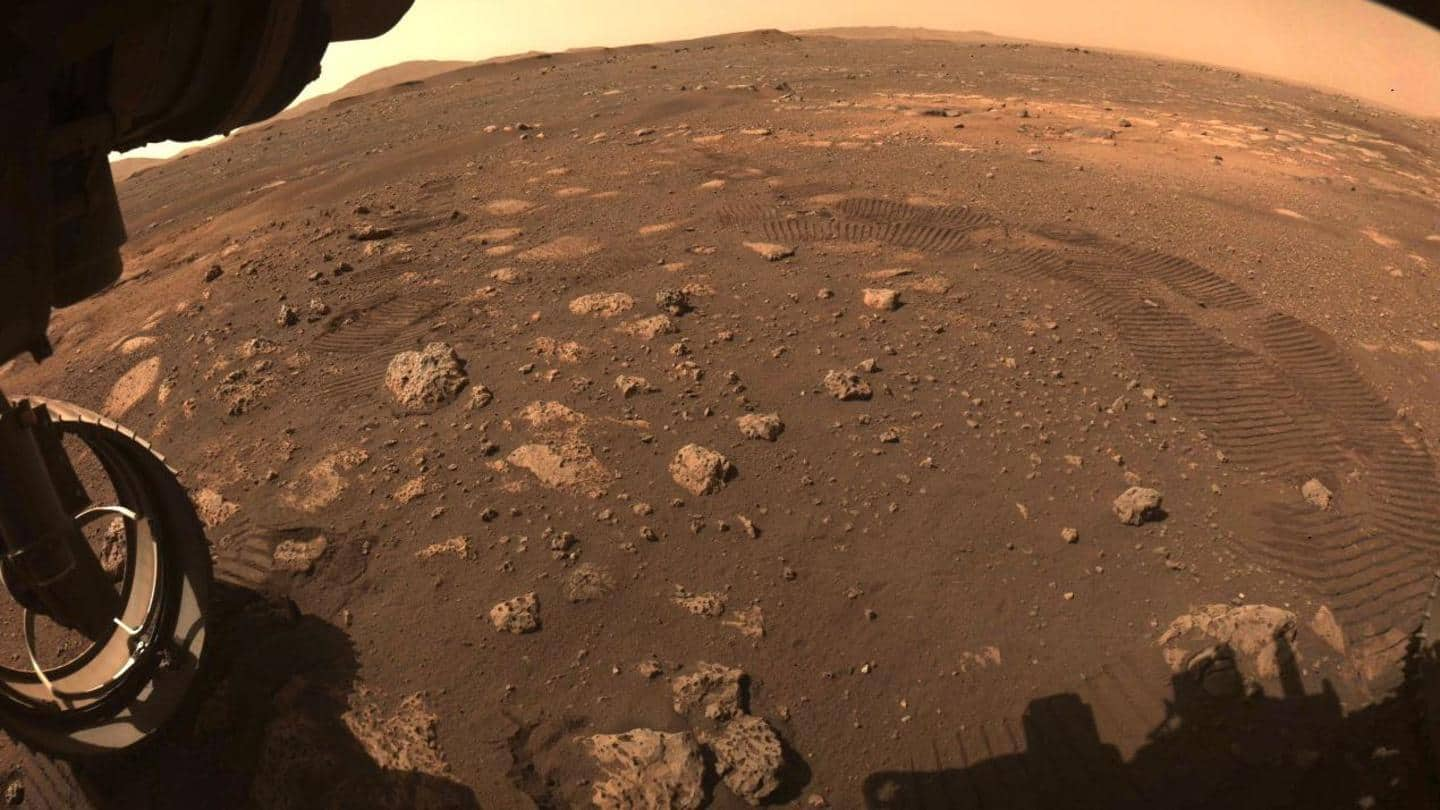
NASA's Perseverance rover completes first test drive on Martian soil
What's the story
NASA has recently announced that its Perseverance rover successfully completed its first test drive on Mars.
The maneuver saw the rover cover 6.5 meters as part of initial system tests before its mission began.
The rover's mobility test bed engineer at NASA, Anais Zarifian, said Perseverance's six-wheel drive responded superbly. She added that the success was a huge milestone for the mobility team.
Test roving
NASA engineers exploring routes for longer drives
The drive lasted 33 minutes and saw the rover move forward four meters, turn 150 degrees to the left, and move backward 2.5 meters to its temporary parking space.
NASA engineers said they are studying routes for longer drives on Mars. The rover can traverse 200 meters in one Martian day, which is slightly longer than a day on Earth.
Flexing
Mission control updated Perseverance's software, tested its robotic arm
Perseverance moves five times faster than its predecessor Curiosity (pictured), which is in operation on Mars to this day.
On February 26, mission control completed a software update on Perseverance. It installed the program that they will rely on for investigating Mars.
More recently, engineers unstowed the rover's two-meter-long robotic arm for the first time and flexed each of its five joints over two hours.
No major issues
Science team will use robotic arm to analyze Martian geology
Perseverance's deputy mission manager Robert Hogg said the robotic arm's successful first test made his day. It is the main tool the science team will use to examine and sample geologic features of the Jezero Crater.
Hogg said the mission had not experienced any major problems so far.
He explained that flight zones for the rover's helicopter drone were also being chalked out.
Thirty test tubes
Perseverance has the most advanced systems ever sent to Mars
The rover has so far beamed more than 7,000 photographs back to Earth. It features the most advanced imagery and analysis equipment ever sent to Mars.
During its mission, Perseverance will collect 30 rock and soil samples which will be retrieved sometime in the next decade. The mission is expected to last only two years, although the rover might continue operating afterward as well.